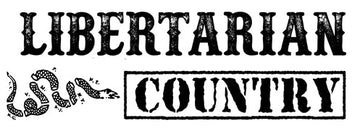Much of the debate about the limitations of free speech today revolves around the fulcrum of what is acceptable for one to express. What limits, if any, does an individual have to speak, communicate, post, publish, or convey in some way to the public?
Some avid 1st amendment absolutists like George Carlin believed that you can joke about any topic that you want, even rape and murder. To find out where the line was drawn and to cross it deliberately was the duty of the comedian.
Others believe that certain speech, including humor and satire, should be limited such as deliberate misinformation and bigoted language.
One could spend a considerable amount of time debating the nuances of the 1st amendment in regard to what is acceptable speech and which should be restricted or outlawed.
In the end, it is always best to support the freedom of speech rather than the banning of speech. Even if you do not like it.
According to the ACLU (American Civil Liberties Union), the only thing that can combat bad speech is more speech, not less. Free and open discussion is a deadly incursion to ignorance and hate. A no-holds-barred, out-in-the-open town hall debate is also an obstacle to misinformation.
An integral part of free speech isn't just the right to express yourself freely, but also the right to consume different opinions and ideas.
The implications of attempting to restrict free expression to "protect people from bad information" or to "preclude offending others" are that they are too weak, stupid, or inept to handle being exposed to those "dangerous" and "offensive" opinions and ideas.
Suppressing skepticism and dissenting opinions is not only a breach of ethics and academic integrity, but it also robs the individual of their freedom to make informed decisions. Censoring opposing opinions can also lead to a lack of trust in experts and institutions.
Every individual should have the right to hear whatever joke, idea, sentiment, or opinion they want to hear.
While some may have the best intentions in mind, suppressing controversial material that may be offensive to marginalized groups is, conversely, incredibly obtuse, narrow-minded, paternalistic, and bigoted.
Imagine for a moment that you were in school reading a controversial essay. You found it interesting and you continued to read it. A few paragraphs into the essay and the chancellor grabs the paper out of your hand.
He explains that you are too vulnerable and fragile to read the ideas contained within; the material you're consuming may be damaging to you.
How would that make you feel?
Then you look around the room and you see other students reading the very same essay, but they are allowed to continue to read on. They're not arbitrarily considered vulnerable and fragile so they're given the leisure to read as they will.
The plot thickens even more. Suppose that some of the students look over at you, and with pity, destroy the essays so that one doesn't accidentally get into your hands.
Realizing that the essay could somehow get into your custody, the students get together with the chancellor and tell the authors to stop publishing it completely for your benefit.
Again, how would that make you feel?
Perhaps you would approve of the effort to protect your sensibilities and appreciate the censorship, but it is not fair to assume that all people want the same thing just because you think they do. It's best to let them decide for themselves.
I cannot speak for anyone else, but I value being able to hear the opinions of others. I enjoy it, indeed. I deeply value the criticisms and perspectives of others who disagree with my ideas, even people who hate me. I would not want to live in a safe and comfortable echo chamber where my philosophies are never challenged.
When considering banning controversial ideas, keep in mind that it does not just affect those who are speaking, but also those who have the right to hear them.
If you enjoyed this article, check out Defending Free Speech Does Not Make You a Bigot.



